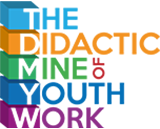In an era marked by global challenges, the United Nations’ Sustainable Development Goals (SDGs) stand as a beacon of hope, outlining a roadmap for a better and more sustainable future by 2030. One of the key areas where the SDGs have proven to be transformative is in the realm of youth work. In this article, we explore the implications of SDGs on youth work, focusing on how these goals are shaping the landscape for young people across Europe.
The Significance of SDGs in Youth Work
The SDGs, comprising 17 interconnected goals, address a wide range of global issues, from poverty and hunger to quality education, gender equality, and climate action. These goals serve as a blueprint for collective action, urging governments, organizations, and individuals to work collaboratively toward a more inclusive and sustainable world.
For youth work, the SDGs provide a comprehensive framework that guides initiatives, projects, and policies aimed at empowering and engaging young people. The goals underscore the importance of youth participation, recognizing the unique perspectives, energy, and creativity that the younger generation brings to the table.
SDGs in Action: European Examples
Quality Education (SDG 4)
Europe has witnessed remarkable strides in aligning youth work with SDG 4, ensuring inclusive and equitable quality education for all. Initiatives such as Erasmus+ have expanded educational opportunities, fostering cross-cultural understanding and providing young people with the skills necessary for the 21st century.
Gender Equality (SDG 5)
Youth organizations across Europe are actively promoting gender equality within their programs. By organizing workshops, events, and campaigns, these organizations challenge stereotypes and empower young individuals to become advocates for gender equality.
Decent Work and Economic Growth (SDG 8)
SDG 8 emphasizes the need for decent work and economic growth. European countries are addressing this through youth employment programs, mentorship initiatives, and entrepreneurship support, ensuring that young people can contribute meaningfully to their economies.
Climate Action (SDG 13)
The youth-led climate movements sweeping across Europe, such as Fridays for Future, exemplify the power of young voices in advocating for climate action. SDG 13 catalyzes mobilizing youth towards environmental sustainability and climate resilience.
SDGs and Youth Work across Europe
The SDGs are not merely lofty ideals but practical tools that can shape the future of youth work in Europe. The emphasis on inclusivity, sustainability, and collaboration aligns seamlessly with the values and aspirations of the younger generation. It is not enough for youth work to be an isolated effort. It must be integrated into a broader framework that addresses the root causes of societal challenges.
The SDGs also challenge the traditional hierarchical structures within youth work, emphasizing the importance of co-creation and partnership. Young people are not passive recipients of support but active contributors to the development process. This shift is crucial for fostering a sense of ownership and commitment among the youth.
However, challenges persist. Implementing SDGs in youth work requires concerted efforts from governments, organizations, and communities. Adequate funding, policy support, and mentorship programs are essential to ensure the sustainability of youth initiatives aligned with the SDGs.
Conclusion
In conclusion, the SDGs offer a transformative framework for European youth work, providing a roadmap towards a more sustainable and inclusive future. Examples from across the continent showcase the tangible impact of aligning youth work with the SDGs. As we navigate the complexities of the 21st century, embracing the SDGs in youth work is not just an option but a necessity, empowering the next generation to lead with purpose and create positive change on a global scale.

